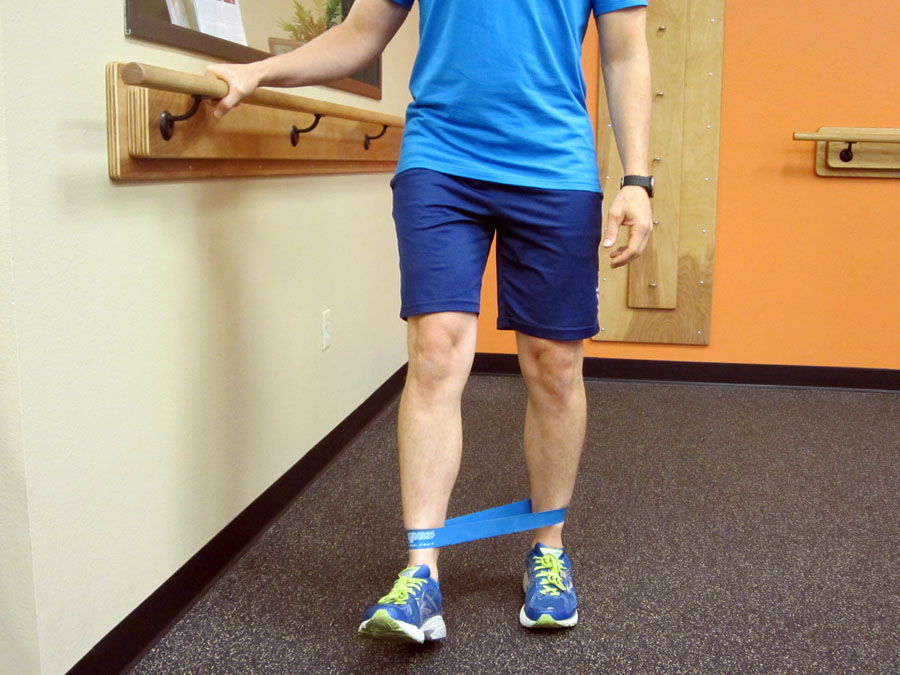Hip pain, knee pain, and even foot pain (such as plantar fasciitis or posterior tibialis syndrome) can have an associated hip external rotation weakness. An important yet often overlooked component to proper lower extremity stability is how the deep hip external rotator muscles need to work along with other hip external rotators and hip abductors, such as the gluteus medius, to insure proper lower extremity positioning when the leg is in full weight bearing. Particularly, in a single leg stance position during walking, running, skipping or landing from a jump as the leg accepts full weight bearing while the opposite leg is in swing phase.
The deep hip rotators, also known as the short external hip rotators, are a group of muscles consisting of the superior and inferior gemelli, obturator internus, quadratus femoris, and the piriformis. This group of muscles is extremely important for stability of the body, pelvis, and leg as the leg/foot initiates full ground contact.
Weakness in these muscles is often associated with many of the more common lower extremity overuse injuries:
- Foot injuries: Plantar Fasciitis, Achilles Tendinitis, Posterior Tibialis Syndrome
- Knee injuries: Patella Femoral Pain Syndrome (PFPS), Iliotibial Band Syndrome (ITBS)
- Hip related issues: Piriformis Syndrome, Hip Bursitis, Hip Impingement

A simple and effective exercise to improve strength of these muscles is the standing hip 3-way exercise. The important points to remember in this exercise are to keep the stance knee unlocked and in a “soft” stance with the patella (knee cap) slightly externally (laterally) rotated (usually pointing toward the 3rd or 4th toe). The rotation must come from the hip, NOT the ankle. The stability of the hip and activation of the deep hip external rotators should be the primary focus.
In the following video, I demonstrate how to use an exercise band to perform the standing hip 3-way exercise, a key hip stability exercise for treating hip pain, knee pain, and foot and ankle related injuries.
For additional videos on my recommended exercises to increase hip strength and stability, be sure to check out:
- How to Use the Clamshell Hip Exercise to Treat Knee Pain
- The Clock Exercise for Knee and Hip Pain and Stability
For prevention strategies and to learn more about on how to self-treat the most common lower extremity overuse injuries, be sure to check out the Resilient Runner Program, which is designed to help YOU meet YOUR training goals by insuring you have the tools to avoid injury, recover quickly, and train at a peak level.
Do you suffer from hip, knee or foot pain? If so, hip external rotation weakness may be part of the reason for the ongoing pain as you overload and overuse other structures trying to gain extra lower leg support. Additional discussion can help others to manage this condition more effectively. Please leave your comments below.
If you have a question that you would like featured in an upcoming blog post, please comment below or submit your question to contact@thePhysicalTherapyAdvisor.com. In case you haven’t already, be sure to subscribe to my e-mail list and YouTube channel as well as join our community on Facebook by liking The Physical Therapy Advisor!
